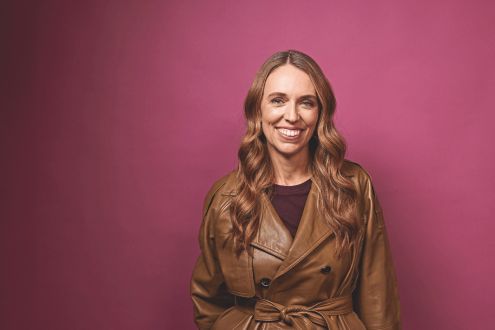I feel alienated and disconnected
Our agony aunt Mary Fenwick offers a new perspective on whatever is troubling you

I was sexually abused when I was a small child, by my grandfather. He’s dead now, so it’s much easier to feel I’ve moved on, although all the recent media coverage about sexual abuse often stirs up my own feelings of sadness. I’ve had therapy in the past and feel like I’ve ‘healed and forgiven’, but I still find it difficult to trust other people. It’s not a conscious thing, but I’ve created a life where I’ve chosen not to rely on anyone and I find it very hard to accept help. It works for me in a lot of ways, but mostly I feel exhausted and disconnected. How can I learn to trust people again? Name supplied
Thank you for sharing this painful story, and I feel honoured that you trust me to make any comment. I don’t have direct experience or training in this area, so I relied on people I trusted, in related fields,
to help me find resources for you.
What I am saying is: please do stick to your commitment to learn to trust, even when it’s difficult, because these human connections will open up and benefit your life in ways you can’t imagine at the moment.
If you have already had therapy, then you probably know the work of Judith Lewis Herman, a Harvard academic, whose book Trauma and Recovery still leads the field, more than 20 years after first publication.
Lewis Herman says that isolation and powerlessness are the two longest-lasting effects of sexual abuse. Your trust was shattered in the context of a relationship, so supportive relationships will also help you heal.
In its simplest outline, there are three acknowledged stages to recovery: safety, remembrance and mourning, and reconnection. It sounds as if you have done the first two essentials of finding a safe place
to talk and revisit your memories. I would suggest that you continue to have a therapist in the background, to touch base as you take baby steps towards reconnection.
In parallel with learning to trust, you’ll also need to find your own way of setting limits. We all have a tendency to trust either too much or not enough and that’s normal, but it might be helpful to have some professional support as you find your place on that spectrum.
I wonder about finding some non-challenging ways of being with other people without direct demands to form relationships – perhaps going to a class to learn something new, visiting an art gallery, or joining an organised walk for a couple of hours.
Unfortunately, there will be continual reminders of what you have been through, as the UK child sexual abuse inquiry gathers momentum, so it’s useful to know that there is a support line run by the National Association for People Abused in Childhood (NAPAC) 0800 085 3330 and also thesurvivorstrust.org. Perhaps in time, you might volunteer to help.
You’ve already taken a step towards connecting by sharing your story. There’s now a virtual tribe of thousands of readers, including me, willing you success. You’ve reminded us how we often don’t know what other people have been through. Please let us know how you get on.
Mary Fenwick is a business coach, journalist, fundraiser, mother, divorcée and widow. Follow Mary on Twitter @MJFenwick. Got a question for Mary? Email mary@psychologies.co.uk, with ‘MARY’ in the subject line
Photograph: Istock









